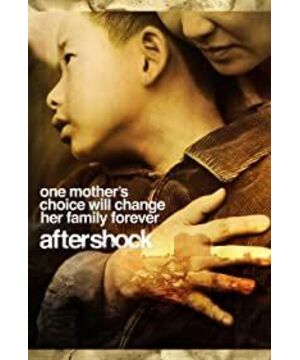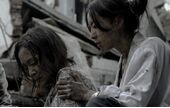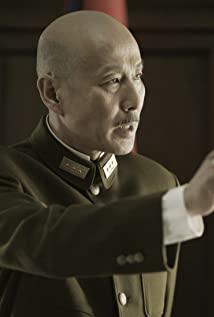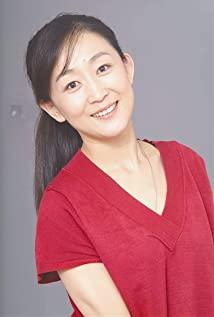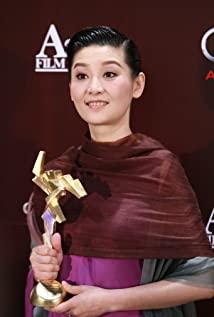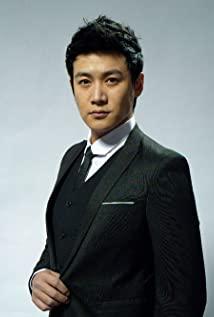The day before yesterday, I watched the new film "Tangshan Earthquake" directed by Feng Xiaogang. To be honest, I still had expectations before watching the film, and I hoped that he would be able to adapt Zhang Ling's original work better. At the same time, in order to keep my respect for the dead, I specially wore a black dress to watch the movie. But when the film ends, there is a certain degree of gap in the heart. This gap may come from the distance from the expected value, or it may come from the unsatisfactory part of the film. At the subsequent press conference, some of the remarks made by Director Feng Xiaogang during the interview were really uncomfortable, so I decided to write down my feelings this time, my real feelings.
When I entered the film review industry, the first program I did was a disaster film. For this reason, I collected a bunch of disaster films to see, and the final feeling is that compared with natural disasters, people are actually the biggest protagonists in disasters. This is also like the sentence of a film critic, "In fact, there is no real natural disaster, because all natural disasters are man-made."
I don't want to discuss why Feng Xiaogang chose to shoot "Tangshan Earthquake" and what his real purpose is. Because in terms of my attitude towards movies, I have never believed that movies are an art, but a cultural product. Therefore, on this basis, it is a way for movie investors and producers to pursue the maximization of interests through various means. A normal and reasonable move, of course, is within the scope permitted by law. Therefore, it is enough for everyone to know that Feng Xiaogang is a commercial film director.
Before watching the film, I had already read Zhang Ling's novel "Aftershock". This short novel does not have such good writing and description, but provides a relatively unique perspective-about the choice of people in the disaster, the betrayal and misunderstanding of family affection, and the torment and healing of the inner wounds after the disaster. It's a good story core, and if it's adapted properly, it's a moving movie. But the screenwriter of the film has buffed away the edges and corners of the original, and changed it (note that I use the word change here) into a family warmth drama without edges and corners, bland and harmonious. Among them, the role of Fang Deng, the daughter played by Zhang Jingchu, is the most disappointing. The heroine's role in the film is not only weakened by the substantial improvement of Xu Fan, Li Chen, Chen Daoming and other roles, but also for her in the disaster. The inner shadow after being "abandoned" in China, so that her influence on the future direction of her entire life has been filtered out without a trace. In the film, you will find that when the time is switched to 1986 through the subtitles, this person is a brand new person, and the kind of personal energy that runs through the original book has a feeling of being separated.
At the same time, in terms of narrative structure, the film adopts the simplest linear progression mode, from 1978 to 1986, then to 1995, and then to 2008. It's a running account-style TV drama narrative. At the same time, in order to enrich the "language" of the film and diversify the relationship between the characters, the film not only greatly improved the scenes of many characters, but also added many auxiliary characters. One result of this is that the main characters are not prominent and the main clues are not clear in the structure of the play.
And this film is too sensational, I do not deny that sensationalism is an effective dramatic technique. But the biggest failure of the film is the "up to 28 tears" it has repeatedly advertised in the media. It is conceivable that there are more than 20 tear points, climaxes and small climaxes in a 120-minute film, with an average of 4-5 minutes. As a result, the film has lost an overall origin and transition in structure, and has become a patchwork and arrangement of countless scattered points. Greatly weakened the dramatic tension of the whole story. Because if a play has climaxes everywhere, the result is that there is no climax.
On the camera lens, the photography of this film is quite satisfactory, very stereotyped, and there is no flexible and expressive lens that jumps out of the script, which makes people feel that the filming is entirely for the completion of the actor's lines and performances. Good photography is talking to the actors through the lens, and bad photography is the actors talking to the camera. There is no doubt that the photography of this film belongs to the latter. It's no wonder that many people feel that this is a "TV movie" after watching it.
A film with a realistic theme is often moved by the handling of details. These details restore not only the historical style, context, and character's temperament, but also the feelings of an era. It is true that this film has made a lot of efforts in serving the Taoism, and has also collected a lot of old objects from the local people in Tangshan, but we still see obvious omissions and inconsistencies in many scenes, especially from the 1986 in the film. At the beginning of 2009, there were too many furnishings and details that made people who passed through that era feel unbelievable. For example, in 1986, there would be no rag dolls and teddy bears in the girls' dormitory, and there would be no modular furniture in ordinary people's homes. For example, the new building in 1995 did not have plastic steel doors and windows and so on. At the same time, in terms of the actors' makeup, the sense of age in the later period is obviously insufficient, especially when the mother and daughter reunited in 2008, according to the logic reasoning, Zhang Jingchu should be the mother of about 38 years old, and Xu Fan is the grandmother of the sixtieth year, but the makeup of the two of them However, it has hardly changed from 1986.
Last but not least is the feeling of the film. Feng Xiaogang has repeatedly made the film's touching as the biggest promotion point. Indeed, countless people will cry during the screening. I think when an elderly mother suddenly knelt down in front of her daughter and said sorry, such a scene would make the audience cry in any drama, because Chinese audiences who always put family, especially maternal love, most recognize this scene. set. However, Jiang Xiaoyu's sentence "If a film is just to make you cry, it is actually the lowest level method", no matter whether this remark is biased or not, it at least conveys a point of view to us, that is, in the handling of feelings , the mournful little feelings are obviously the simplest, easy and trouble-free method. However, the greater feeling is a silent touch and shock to the heart. This kind of shock may not need hoarse language, no earth-shattering shouts, just a common expression. I have watched "The Age of Pentium", "Perfect World", and "How to Train Your Dragon"... These films have no scenes of life and death, but they deeply touched my heart.
I personally hold a firm disgust and disapproval of the passages in the film about the Wenchuan earthquake and the practice of citing photos of children killed in the Wenchuan earthquake. Because a person who holds a trace of respect for the mourner will not use such a method to serve his own goods. After so many years of 9/11, Hollywood has not yet had a film that directly attacked the disaster, except for the "World Trade Center" from the perspective of firefighters, which uses the huge shadow of the plane to cross the overpass to explain the collision. Because they understand that a collective memory that bears too many people's suffering should not be reproduced by video works. The greatest comfort to the mourners is actually four words - condolences and conformity. I think this should be a kind of cultivation, an attitude - reverence for life and respect for others.
The world has never lacked love, what is lacking is the true interpretation of love.
View more about Aftershock reviews


